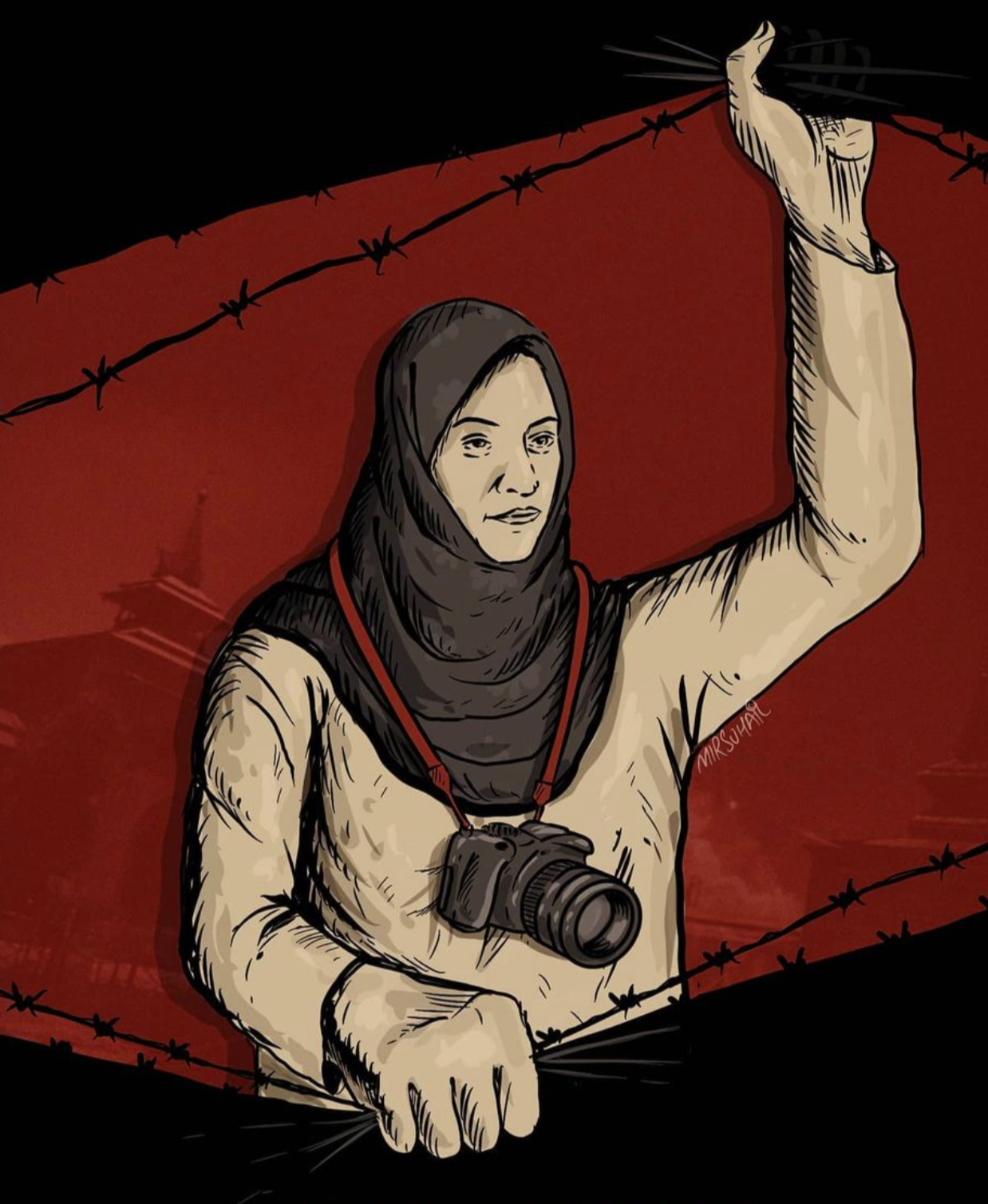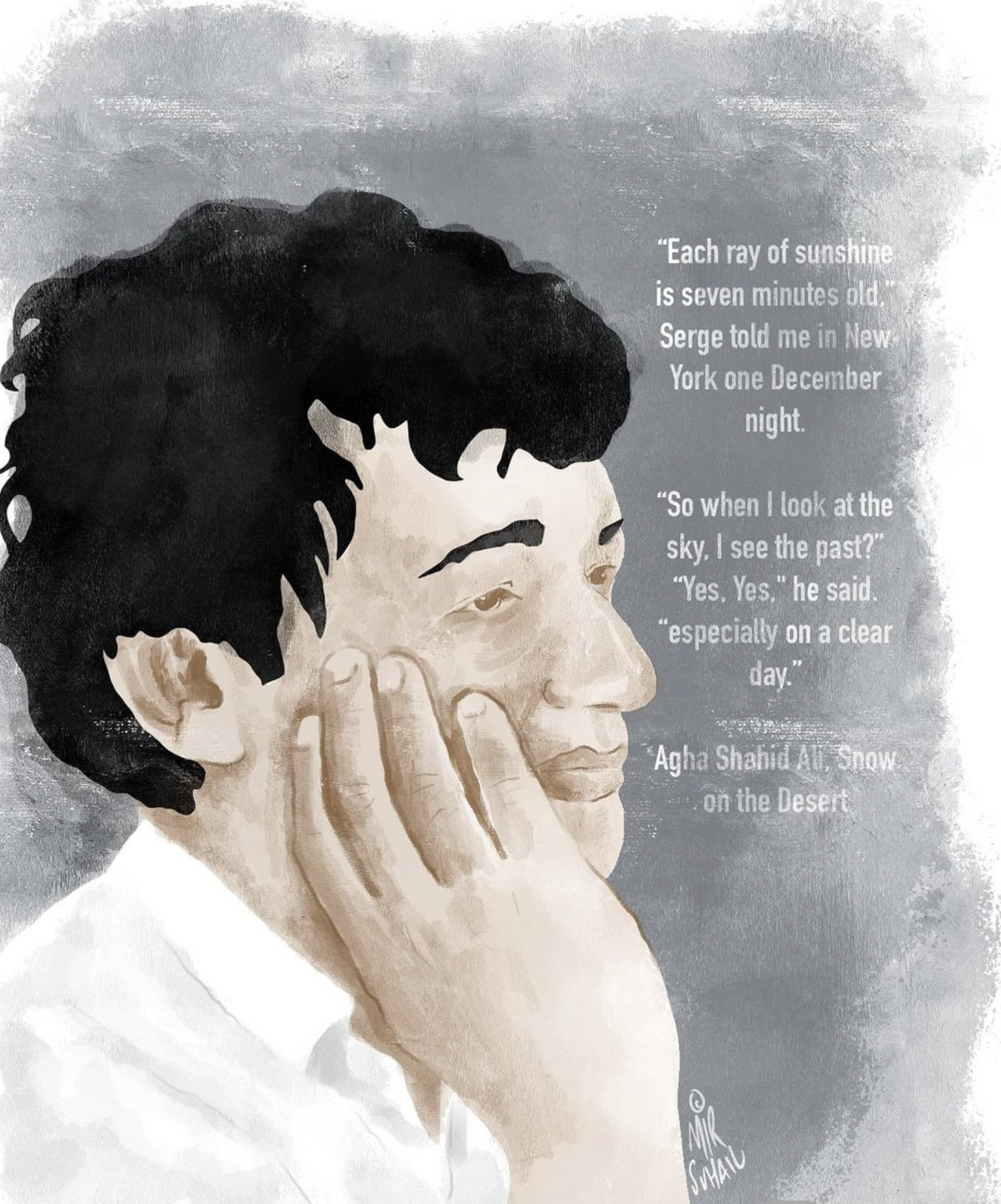Our Team
“I come to this story as a Kashmiri-Pakistani-American filmmaker and educator whose family fled Srinagar during the Partition of India. My father understood Kashmiri, but we never learned it. Like many diasporic South Asians, I’ve spent much of my adult life trying to stitch together the broken threads of homeland, identity, and language. After experiencing 9/11 in New York and watching Muslims become the global scapegoat, I returned to Pakistan and began working as a filmmaker in conflict zones—including in Pakistan-administered Kashmir.”
“Over the past two decades, I’ve documented resistance movements and state violence from inside classrooms, clinics, and courtrooms. I’ve built relationships with grassroots organizers, exiled journalists, and artists like Mir Suhail who continue to challenge authoritarianism with incredible creative courage. I’m also a teacher, and I believe in the power of narrative to reframe our understanding of history, identity, and justice—especially for young people grappling with the weight of their cultural and political inheritance.”
Umbreen Butt
Writer - Director Umbreen Butt is an award-winning journalist and documentary filmmaker known for lush, cinematic storytelling that is both emotionally intimate and unflinching in its critique of culture and power. She directed the acclaimed series Blind Angels (New Orleans Film Festival 2022), which premiered on CNN for World AIDS Day, screened at a dozen U.S. festivals, and was featured at leading international HIV/AIDS conferences. Her work has appeared on Hulu, CNN, Discovery, CBS, MSNBC, The New York Times, and Al Jazeera. Umbreen has received Murrow Awards for her reporting with The Toronto Star on Gen-Z Chinese climate activists, along with Webby, Digiday Publishing, FOMA, and Titan honors for branded campaigns she directed for CNN and Discovery. She currently teaches video production at Baruch College’s Weissman School of Arts and Sciences.
Jordan Mattos
Co-Writer Jordan Mattos is a film producer and sales agent specializing in the international distribution of feature films. Leveraging unique connections in the art and fashion industries, he has distributed award-winning films and introduced international filmmakers to the US market. His track record includes We Margiela, Shirin Neshat's Women Without Men, Warwick Thornton's Samson and Delilah, and Anurag Kashyap's That Girl in Yellow Boots. He has consulted for Venice Critics' Week and participated in Berlinale Talents and Locarno Industry Academy. His work has been featured in Permanent Paper, Vice Magazine, and Paper Magazine. Currently, he is associate producing Jennifer Venditti's Billy the Kid and developing Umbreen Butt's first feature, A Country Without A Post Office.
Mir Suhail
Illustrator Mir Suhail is a political cartoonist and artist based in New York City. He is from Indian-occupied Kashmir, where he grew up and started his political cartooning career drawing for a local daily at the age of fourteen. He has since drawn cartoons for leading print and digital news media, publishers, and non-profit organizations in the Indian sub-continent and internationally. His work has been featured by CNN-News 18, The Caravan Magazine, Amnesty International, Action Aid, and Save the Children. His work has been profiled in Raiot Magazine, BBC, and Al-Jazeera English amongst others. Mir has over 50k followers in Instagram: some are haters, but most are fans.
“Though our film will deal in the stories and histories of a very specific region, our goal is to translate the specific issues of Kashmir to the rest of the world, drawing links to contemporary questions and issues, so that the film can engage North American and international audiences alike. We aim to utilize a robust film festival strategy that contextualizes the film for a wide audience, modeling the festival campaigns for films in our genre.”
”Films like Waltz with Bashir, Persepolis, and the Chicago 10 have shown that audiences are driven to the right mixture of beautiful animated style with complex positions on timely cultural and historic questions. In addition to the festival market, we also will prioritize the theatrical market, as our goal is to engage critics and through their discourse reach lovers of arthouse cinema. To reach a more directly related demographic, we will also invest in a non-theatrical outreach effort aimed at South Asian institutions and community groups.”


